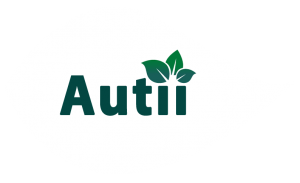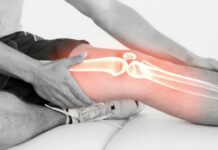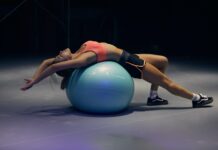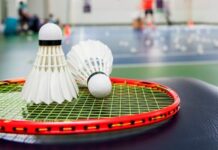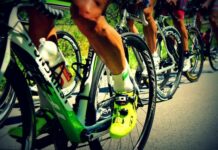Some people, seeing that they lead a very sedentary life, have decided to take matters into their own hands and turn their current situation around, training two to three times a week. This is very positive, since they manage to be active, as well as look and feel better.
However, in doing this they can be tempted to focus too much on training and leave out one very important aspect: nutrition. In fact, we could say that both things go hand in hand and that we cannot do one and not do the other.

If we make that mistake, it would be equivalent to attacking our own health, which we do not want to happen, because the reason for training is to feel better. So it would be a real paradox.
Of course, although it is necessary to eat, that does not mean that there are no rules about what to eat and what time we should do it. It is not about having the green light to ingest everything that is put in front of us. Rather, it is about being clear about what to avoid in order to accelerate the effect of training on our body.
It is true that the morning hours are usually the most productive for a good exercise routine. However, it is important that we do not overlook eating before training. The idea is to do it before you push your body, not after.
But why is this important? What other things should you take into account? What are the benefits of doing it this way? Is there a problem training without having eaten first? What kind of food should be consumed before training?
If you have asked yourself any of these questions or others, in this short article you will find the answers you are looking for. That’s why we encourage you to take notes.
Instructions
One factor that will determine which foods to consume before exercising is their glycemic index, whether it is low, medium or high. This will depend on the speed with which the body will absorb them, after being consumed.
Eating foods high in the glycemic index, at a certain time, can cause the pancreas to become overloaded, hindering the oxidation process of fatty acids and impeding performance in sports.
Some nutritionists recommend eating foods with a low or medium glycemic index before training, as they provide less sugar circulating in the blood and more energy during exercise.
You can combine a simple carbohydrate source with a more complex one, and the recommendation is to do it 45 minutes or an hour before starting the training. But what foods can you eat? These are some:
Banana and Oatmeal Cookies
In addition to being very delicious, they are easy to make and will provide you with the necessary nutrients for training:
- Place the banana in a container and mash it well, until it is like a paste.
- Add about 50 grams of oatmeal, preferably ground. However, you can also use it in flakes.
- If you have protein powder, you can add about 30 grams to it. If you don’t have one, an alternative is to use one or two egg whites.
- Add a little sugar and cinnamon to taste.
- Grease a baking dish and place small balls of the mixture, one separated from the other.
- Take it to the oven for a few minutes and voila! In case you prefer, you can also use the microwave.
Protein shake
This shake is made up of slow-absorbing carbohydrates, protein and healthy fat. You can take it an hour or two before you start your workout. This is what you will need:
- 500ml of skim milk.
- 50 grams of protein powder or 4 egg whites.
- 50 grams of yogurt that is skimmed.
- 30 grams of some dried fruit, such as peanuts, almonds, hazelnuts, sesame or other.
- 70 grams of banana.
- A little sugar and cinnamon to taste.
All you have to do is add all those ingredients to a blender or food processor and voila! You can take it very cold, so you can enjoy it even more.
Fruit juices
Fruits are a very good option to consume before training. In juice, it can have an even more beneficial effect. Of course, as long as it is 100% natural, free of chemicals and other substances.
It is better to choose fruits with a low glycemic index; this is because they are assimilated by the body more slowly. Which will result in you staying energized for much longer. Some of these fruits are the following: pear, apple, grape, grapefruit and the like.
Plus, you’ll help keep yourself hydrated. This is important since water is required for the storage process of carbohydrates in the muscle to take place, and thus have enough energy for training. So if you drink little water, juice will help meet this important requirement.
But, what else do you need to keep in mind regarding food and its importance? Let’s see.
What do you need
The fundamental reason is because in the first hours of the day, your body’s energy reserves are completely depleted. Eating foods that are rich in carbohydrates and protein will give your body the energy it needs for optimal training performance.
In addition to that, it will allow you to achieve the goal you have set for yourself when training, whether it is losing weight, reducing measurements or gaining muscle mass. Regardless of whether you’re working out at home or at the gym, if you work out without eating, you won’t be able to perform at your best.
Some of the benefits of eating before training are the following:
- You will train with more strength and energy.
- You will be speeding up your metabolism, which will allow you to lose a lot of body fat.
- Healthy eating is very positive for your life and your health, so it is worth trying.
- You will achieve a fitness body with the best results.
These are some of the reasons we have for not skipping the morning meal, before starting physical training. Now, it is also necessary that you take into account some tips related to what you should avoid.
Tips
- While it is true that some foods are beneficial for a better performance in training, the opposite is also part of a fundamental truth, some foods can compromise it.
- It is important that you keep in mind that you should not eat whole foods before exercising, why? The reason is because when we play sports, all the metabolic activity is directed to the muscles. In this way, digestion takes second place.
- Since there is not enough blood flow to digest heavier foods, it can cause stomach cramps, intestinal pain and diarrhea that make it impossible to have an effective workout.
- Second, avoid foods that are difficult to digest. You don’t have to be a nutritionist to know what they are. However, so that there is no room for ambiguity, these foods are the following: dairy products, fried foods, chocolate, butter, red meat, soft drinks, etc.
- Above all, avoid foods that are high in fat. It is true that fat is necessary to have a balanced diet. However, it is the nutrient that is processed more slowly. This means that, at the time of your training, it will not be broken down enough for you to start that activity.
- Don’t eat gas-producing foods. For example, beans, broccoli and the like. This type of food can cause intestinal discomfort that will prevent you from performing correctly in your usual routine.
- Just as you shouldn’t eat certain foods before you exercise, you should also watch the amount of food you eat. If you eat less than usual, then the waiting time to train will be less. The opposite is also true, if you eat too much, you will have to wait more than an hour to put your body through training.
If you put these suggestions into practice, you will be sure that your body will react favorably to training.
